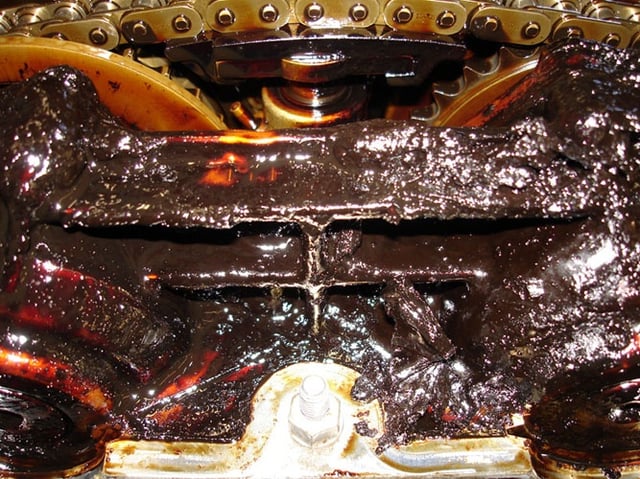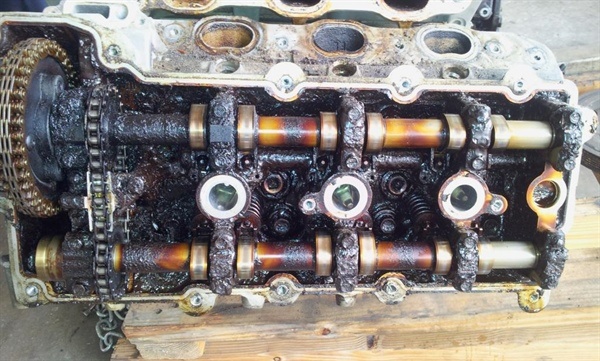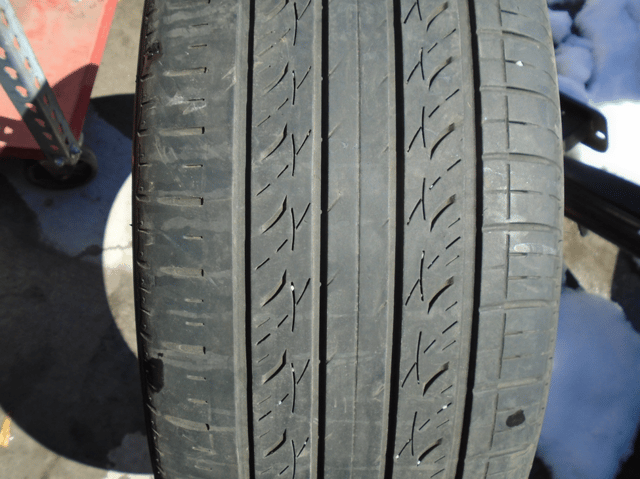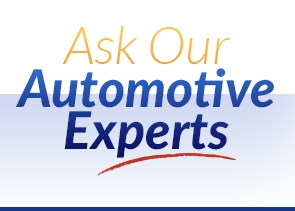
Routine maintenance on your vehicle shouldn’t be considered a “repair cost”, think of it as more of a gym membership or eating healthy for your body. The better you take care of your body, the healthier you are and the longer you live. Your vehicle is not any different, your vehicle requires routine maintenance to last over 200 or 300K miles. Yes, this is possible with today’s vehicles, with attention paid to maintenance, your vehicle will last a very long time and be more problem free. Many actual repairs performed to vehicles are a result of poor maintenance. Of course some things will always just break or wear out, but simple regular maintenance can prevent some breakdowns. Here are a few important ones.
OIL: Besides the obvious, lubricating moving metal parts in your engine, fresh clean oil is important for other reasons. The longer the oil is in the engine the more fuel vapor it absorbs. This is what “breaks down” your oil. We’ve all heard the commercials, the fuel in the oil eats away at the seals and gaskets in your engine and this is what causes oil leaks. No, not all leaks are from poor oil condition, but many unnecessary repairs are made because of poor oil change habits. Oil breakdown is what also leads to engine failure and turbo failure. The oil bakes and boils inside a turbo and then turns into artery clogging sludge. Soon your turbo starves for oil and fails, another unnecessary repair expense and turbo replacement can cost $3000 or more. Some cars have more than one turbo.


Some manufacturers recommend oil change intervals at 10K miles or even higher. This is way too long! They do this as a cost cutting measure for them and to make the vehicle seem to be lower maintenance than it is. Change your oil every 3-5K miles
COOLANT: Like with oil the longer coolant sits inside your engine and radiator the more it changes in chemical form. Over time the coolant turns from this wonderful cooling, lubricating liquid into a corrosive acid that eats your cooling system from the inside out. Unlike oil it doesn’t happen so quickly. At roughly 5 years or 60,000 to 75,000 miles your coolant needs to be flushed and replaced with new. The acidic coolant eats away at the seals in your water pump and thermostat; it also dissolves the plastic in your radiator and eats the rubber hoses. An electric water pump can cost as much as $2000 to replace.
BRAKE FLUID: Brake fluid has several important purposes in your brake system, and all cars use the same fluid and same theory for use. Brake fluid’s main purpose is to serve as a hydraulic fluid to operate the brake calipers, squeezing your rotors and thus stopping your vehicle. Another purpose is to lubricate the rubber components inside the system. Brake fluid is hydroscopic, which means it absorbs water. When brake fluid absorbs water, two problems are created. First moisture lowers the boiling point of the fluid and if the fluid boils the brake pedal will get spongy. Secondly moisture can cause rusting and corrosion of brake parts. Brake fluid should be flushed every 3 years or 36K miles. Did you know brake caliper or master cylinder repairs can easily exceed $500?
BATTERY: Yes, your vehicle battery is a maintenance item. Todays vehicles are very hard on batteries as well. So many things run and drain your battery long after you have turned off the key and walked away. Also, many new vehicles only charge the battery on deceleration to increase fuel economy. Some manufacturers even require battery replacement every 20K miles as part of routine scheduled maintenance. One reason I stress attention to battery maintenance is on turbocharged engines; after you shut off your vehicle an electric pump continues to run and circulate coolant (or oil) to cool off your turbo to extend its life. If the available power in your battery drops below a specific point the vehicle turns off all electrical loads so you are still able to start your vehicle next time. Consistently low power in a battery leads to premature turbo failure because it isn’t being cooled. Remember turbo’s are very expensive.
DRIVE BELTS: These rubber belts that are constantly moving while your engine is running, operating your alternator, air conditioning, power steering and water pump. Usually one belt drives multiple devices and sometimes one belt drives all of them. Without any one of those things you wouldn’t want to drive your vehicle, but belts often get overlooked. Newer belts do not typically crack like older ones, the rubber just wears away and the belt stops fitting like it should. When the belt wears and becomes thinner it simply just breaks. Belts should be checked every 30K miles but usually replaced every 60K miles. Timing belts, if your engine has one are also a maintenance item not a repair item. It becomes a repair when a belt breaks and bends valves, resulting in major engine repair.
There are several other maintenance items on your vehicle that should be addressed at regular intervals, I have only touched on a few that can strand you or lead to very costly repairs. Again, most repairs can be avoided by regular maintenance, neglecting your vehicle shortens its life expectancy and can cost $1000’s more to keep on the road. The owner’s manual for your vehicle is an excellent resource for what your vehicle needs to stay on the road.
Figure 1 This worn out spark plug caused a misfire that damaged an oxygen sensor and a catalytic converter. Spark plugs alone would have cost $200. With the O2 Sensor and converter the repair was almost $1200.

Figure 2 This tire wore out prematurely because the wheels weren't in alignment. On all wheel drive vehicles, if one tire wears out before the others, all four usually need to be replaced.
Tom Vettraino, ASE Master Technician (28 years experience)



